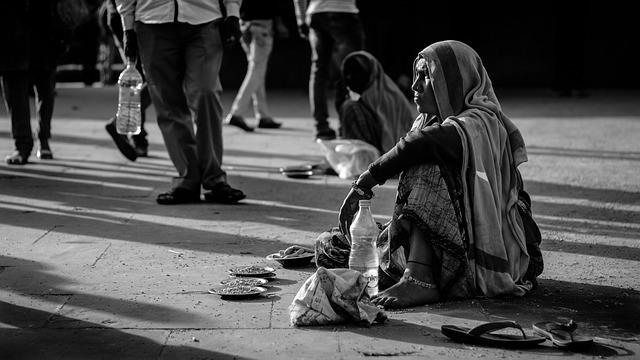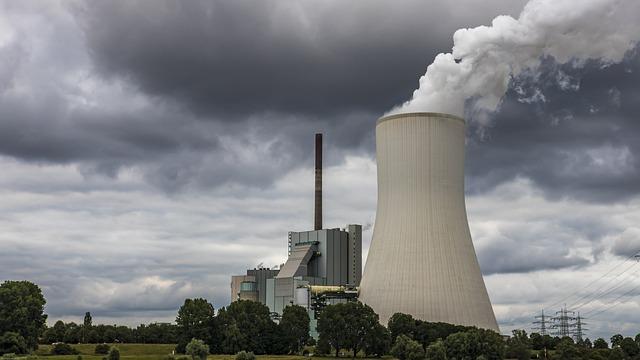In the midst of escalating violence and a deteriorating humanitarian situation in Sudan, the African Union (AU) has called for an immediate ceasefire to address the urgent needs of the affected population. As clashes between rival factions persist,the conflict has displaced millions and strained already limited resources,exacerbating a crisis that humanitarian organizations warn could spiral further out of control. In recent developments, the AU has intensified its diplomatic efforts to broker peace and facilitate aid delivery, emphasizing the need for urgent international support to alleviate the suffering of civilians. This article explores the current state of the crisis in Sudan, the implications of the AU’s intervention, and the critical need for a united front in addressing one of the most pressing humanitarian challenges in the region today.
AU Calls for Urgent Ceasefire Amid Intensifying Conflict in Sudan
The African Union has issued an urgent call for a ceasefire as violence escalates in Sudan,resulting in a severe humanitarian crisis. The ongoing conflict between rival factions has led to widespread displacement, with millions fleeing their homes in search of safety.Millions are currently facing dire living conditions, with essential services like health care and clean water becoming increasingly inaccessible. Key humanitarian organizations are warning that without immediate intervention, the situation may deteriorate further, risking a catastrophic loss of life.
In response to the deteriorating situation, the AU emphasizes the necessity for all parties involved to halt hostilities and engage in dialogue. Critical actions include:
- Restoration of peace and security in affected regions
- Facilitating humanitarian access for aid organizations
- Ensuring protection of civilians and vulnerable populations
The AU also urges regional players and global partners to unite in addressing the crisis with the urgency it demands. As the humanitarian situation worsens, the need for immediate action has never been more pressing, with the stability of the region hanging in the balance.

Humanitarian Crisis Escalates: Impact on Civilians and Refugees in Sudan
The ongoing violence in Sudan has resulted in an unprecedented humanitarian crisis, severely affecting millions of civilians. Reports indicate that essential services, including healthcare and access to clean water, have collapsed in many regions. the chaos has led to a important displacement of populations, with thousands fleeing their homes daily. As an inevitable result, the needs of the affected families and individuals have skyrocketed, leaving humanitarian organizations struggling to provide aid. Key issues include:
- Food Insecurity: An estimated 25 million people are facing acute food shortages, pushing families into a desperate situation.
- Healthcare access: Hospitals are overwhelmed, with many medical facilities destroyed or under attack, leading to a surge in preventable diseases.
- Displacement: Over 3 million people have been uprooted from their homes, creating overcrowded refugee camps with inadequate resources.
the plight of refugees fleeing the conflict has attracted international attention, yet the response remains fragmented and inadequate. Countries bordering Sudan are overwhelmed with the influx of newcomers,further straining their own resources. The lack of safe passage for those escaping violence only exacerbates the situation, as many are forced to undertake perilous journeys. Aid organizations report that without immediate intervention, the conditions for these populations will deteriorate further. Key factors contributing to this escalating crisis include:
| Impact Factor | Description |
|---|---|
| Violence Escalation | Increased attacks on civilian areas and humanitarian workers. |
| International Aid Shortages | Funding gaps making it tough to supply necessary aid. |
| Political Instability | Ongoing power struggles hinder meaningful humanitarian negotiations. |

International Response: The Role of Global Powers in Mediating Peace
The ongoing crisis in Sudan has drawn the attention of global powers, each vying to play a pivotal role in mediating peace efforts. The African Union (AU), along with other international stakeholders, is pushing for an immediate ceasefire as humanitarian conditions deteriorate. Global powers such as the United States, the European Union, and regional players are increasingly involved, recognizing that stability in Sudan is crucial not only for the nation itself but also for the wider region. The collaboration between these entities has taken various forms, including diplomatic negotiations, sanctions, and support for humanitarian aid initiatives.Key initiatives are being discussed to ensure that aid reaches the millions affected by conflict, emphasizing the moral obligation of the international community to act decisively.
In this intricate landscape, the roles of major influencers can be outlined as follows:
- United States: Advocating for sanctions against violent actors while promoting diplomatic channels.
- European Union: Providing humanitarian aid and fostering discussions between conflicting parties.
- China: Engaging in economic diplomacy, offering support to peace-building efforts.
- United Nations: Coordinating international responses and mobilizing resources for humanitarian assistance.
| Global Power | Key Action |
|---|---|
| United States | Sanctions and diplomacy |
| European Union | Humanitarian aid distribution |
| China | Investment in peace-building |
| United Nations | Resource mobilization |
As the conflict unfolds, the need for a united and effective international response becomes imperative. The interplay of various global powers can either pave the way for a peaceful resolution or worsen the crisis if mismanaged. Continued engagement in diplomacy and support for grassroots efforts will be essential in crafting a sustainable path forward for Sudan, as the clock ticks on the urgent need for relief and protection of its people.

Recommendations for Effective Humanitarian Aid and Support initiatives
To address the escalating humanitarian crisis in Sudan,it is crucial to implement effective strategies that can alleviate the suffering of the affected populations. Collaboration among international organizations, local NGOs, and governments is essential to ensure a unified and efficient response. Key actions should include:
- Needs Assessment: Conduct thorough evaluations to identify the most pressing needs of communities impacted by conflict.
- Resource Allocation: Efficiently distribute essential supplies, including food, water, medical aid, and shelter to those in urgent need.
- Community Engagement: Involve local leaders and communities in planning and implementation processes to create culturally appropriate solutions.
- Monitoring and Evaluation: Establish feedback mechanisms to assess the effectiveness of initiatives and adapt strategies based on real-time data.
Additionally, fostering resilience within communities is paramount for long-term recovery.Humanitarian agencies should focus on empowering individuals through education and vocational training programs. By creating opportunities for self-sufficiency, the following objectives can be pursued:
| Objective | Benefit |
|---|---|
| Promote Education | Enhances literacy and skills development, especially for youth. |
| Support Livelihoods | Encourages entrepreneurship and job creation within local communities. |
| Strengthen Health Services | Improves overall health outcomes and reduces dependency on aid. |

Long-term Solutions: Addressing Root Causes of the Sudanese Conflict
the protracted conflict in Sudan is deeply rooted in a myriad of factors that go beyond the immediate battles between factions. Socio-economic disparities, ethnic tensions, and historical grievances all contribute to the volatility of the region. To effectively address these underlying issues, ther is a pressing need for comprehensive strategies that involve both national dialogue and community engagement. Initiatives must focus on rebuilding trust among communities, promoting inclusive governance, and addressing inequitable resource distribution that frequently enough fuels discontent and unrest.
Moreover, the international community plays a crucial role in fostering long-lasting peace by supporting local initiatives aimed at conflict resolution. This could include establishing reconciliation programs that encourage dialogue between conflicting parties and investing in development projects that improve local livelihoods. Effective monitoring mechanisms should also be put in place to ensure adherence to peace agreements. The commitment to sustainable peace will depend significantly on the active participation of marginalized groups, notably women and youth, whose voices are often overlooked yet essential for fostering a cohesive society.

Prospects for Peace: The Path Forward for Sudan and its Citizens
In light of the escalating humanitarian crisis in Sudan, the African Union‚Äôs call for an immediate ceasefire underscores the urgent need for dialogue and reconciliation among the conflicting parties. The situation on the ground demands a multifaceted approach to peace that prioritizes the well-being of civilians who have borne the brunt of violence and instability. Moving forward, key stakeholders‚ÄĒincluding regional powers, international organizations, and civil society‚ÄĒmust unite to foster an surroundings conducive to negotiations and sustainable peace. This can be achieved through:
- Inclusive Dialogue: Engaging all factions and communities in peace talks to ensure that diverse voices are heard.
- Humanitarian Access: Securing safe passage for aid organizations to deliver critical assistance to affected populations.
- Monitoring Mechanisms: Establishing independent bodies to oversee ceasefire agreements and hold violators accountable.
- Long-term development Plans: Investing in infrastructure, education, and healthcare to rebuild the country and promote resilience.
To gauge the potential success of these initiatives, a dedicated effort must be made to support grassroots movements that advocate for peace and reconciliation.Empowering local leaders and communities can serve as a powerful catalyst for change. The following factors will be crucial in transforming the current landscape:
| Factor | Importance |
|---|---|
| Community Engagement | Builds trust and fosters collaboration among citizens. |
| international Support | Provides necessary resources and advocacy for peace efforts. |
| Conflict Resolution Training | Equips individuals with skills to mediate disputes peacefully. |
To Conclude
the African Union’s call for an immediate ceasefire in Sudan underscores the urgent need to address the rapidly deteriorating humanitarian crisis impacting millions. As fighting escalates and basic services collapse, the international community is reminded of its obligation to support peaceful resolutions and provide much-needed aid. With the clock ticking, the stakes have never been higher for Sudanese civilians caught in the crossfire. As the world watches, it is indeed imperative that all parties commit to dialogue and cooperation to restore peace and stability in the region. Continued attention and action are crucial to alleviating the suffering and rebuilding the future of Sudan.







